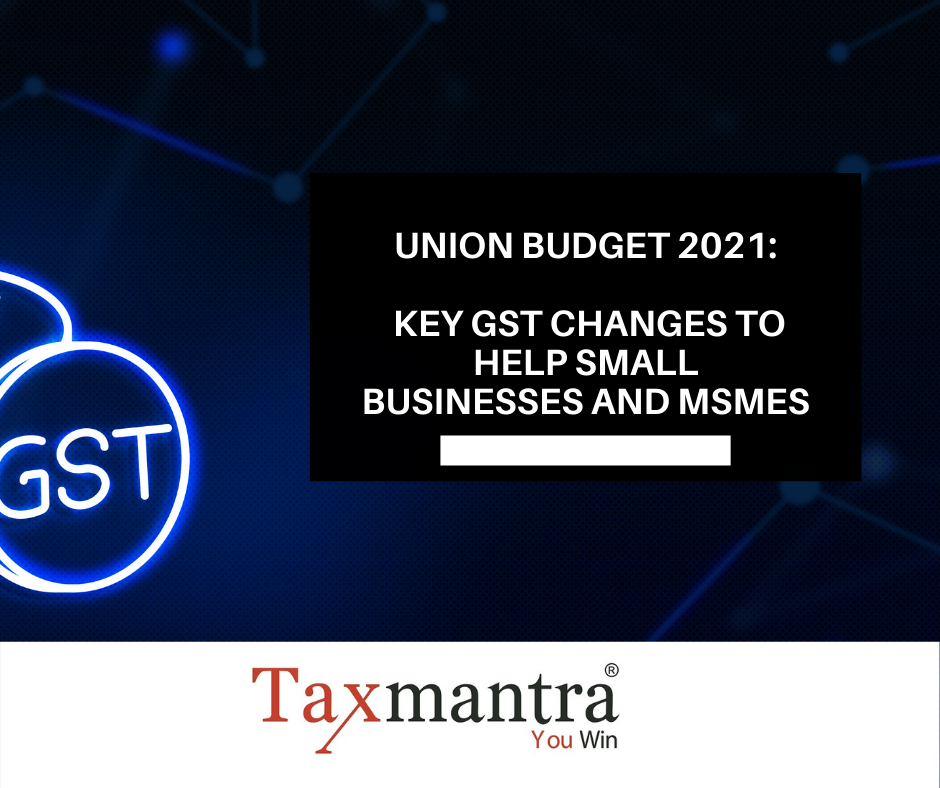
The Union Budget was presented on 01st February 2021. The speech was unbelievably short. However, when the Budget Memorandum and Finance Bill was released, it turned out to be a Pandora’s Box. So, if one has just perused the Budget speech for your knowledge, then one is in for a rude shock.
Here, we have outlined those GST amendments, that we believe will be benefitting the small businesses/MSMEs.
1. Mandatory requirement of GST Audit scrapped
This is perhaps one of the biggest beneficial moves for small businesses/MSMEs. GST was brought in to ease the compliances. However, it has always been criticized for doing the exact opposite. Be it the constant glitching of the site, or the complicated rules, or the flawed return filing process – GST has been the cause of trouble for small businesses. The Govt has been constantly making changes in the law/rules so as to ease these out. Consequently, the GST rules and notifications are now meatier than the Act itself 🙂
Carrying on with this trend, the Govt has now announced in its Budget 2021 that businesses with a turnover of up to Rs. 5 crores are not required to get their accounts audited by Chartered Accountant. Along with it, the erstwhile need for certification of the annual reconciliation statement has also been removed. Instead, businesses can now self-certify.
What we think: In theory, it does look like a welcome move. Compliance cost is supposed to get way lower. Hassles eased. However, in practice, how effective these will be, remains to be seen. The GST returns and reconciliation is a tedious process and business owners who are not very much aware of the processes or intricate details of the law are likely to face hurdles. At least in the initial stage. The missing out of details, errors are omissions are high-risk areas. So is the increase in chances of fraud.
2. Interest Payable Only On Net Liability
The existing provisions outline an 18% rate of interest. Taxpayers have always battled with the uncertainty of whether this 18% is applicable on gross or net tax liability. Gross tax liability means the whole of the outstanding amount of tax without any deduction of unutilized credit. Whereas net tax liability means the amount arrived at after utilization of input tax credit available in the electronic ledger. This uncertainty has opened the doors for litigation in a number of cases till now.
Putting this issue to rest, the Government has now effected an amendment to the CGST Act which specifies that interest will only apply on the net tax liability. This amendment will apply retrospectively from July 1, 2017—the date from which GST was enforced.
What we think: Again, in theory, it does seem like a welcome move. Also, the fact that it a retrospective amendment means that older demands also will only apply to that portion that is paid through cash. However, the caveat that the change will not apply if investigations have been initiated by the department is a dampener to the spirit of this amendment.
3. Clarity on credit availability
The CGST Act outlines that registered persons can avail input tax credit (ITC) against valid invoices if they comply with “prescribed requirements.” While the act prescribed no further conditions, the government amended the CGST rules to specify that tax credit can only be availed if the supplier gives a valid invoice and furnishes its details in his statement of outward supplies. In Budget 2021, the Govt has now introduced an amendment to implement these rules since taxpayers had earlier questioned the legal validity of the changes.
These are some changes that are likely to have a positive impact on small businesses/MSMEs. There are many other changes, that may not necessarily be positive but are indeed important to note. Some of those are:
- Expansion in the scope of supply to include activities or transactions of supply of goods or services or both by any person, other than an individual, to its members or constituents or vice-versa.
- Making of the seizure (Section 129) and confiscation proceedings (Section 130) of goods and conveyances in transit a separate proceeding from the recovery of tax.
- Clarification that “self-assessed tax” shall include the tax payable in respect of outward supplies furnished in GSTR 1 but not included in the return furnished in GSTR 3B.
- Changes in Penalty Rules.
It is to be noted that there are various other changes which we have highlighted in our article – Union Budget 2021: All about GST Changes in the Union Budget 2021
__________________________________________________________________________________________________________
We’re listening:
For any query, support or feedback, reach us at India Tax and Legal Compliances or WA us at +91-9230033070 or Call us at 1800-102-7550
In these troubled times -COVID-19, we, at Taxmantra Global urge you to stay safe – social distancing, personal hygiene, and health care are of utmost importance! Stay safe!
______________________________________________________________________________________________________

 Toll Free:
Toll Free:  Contact Us
Contact Us

